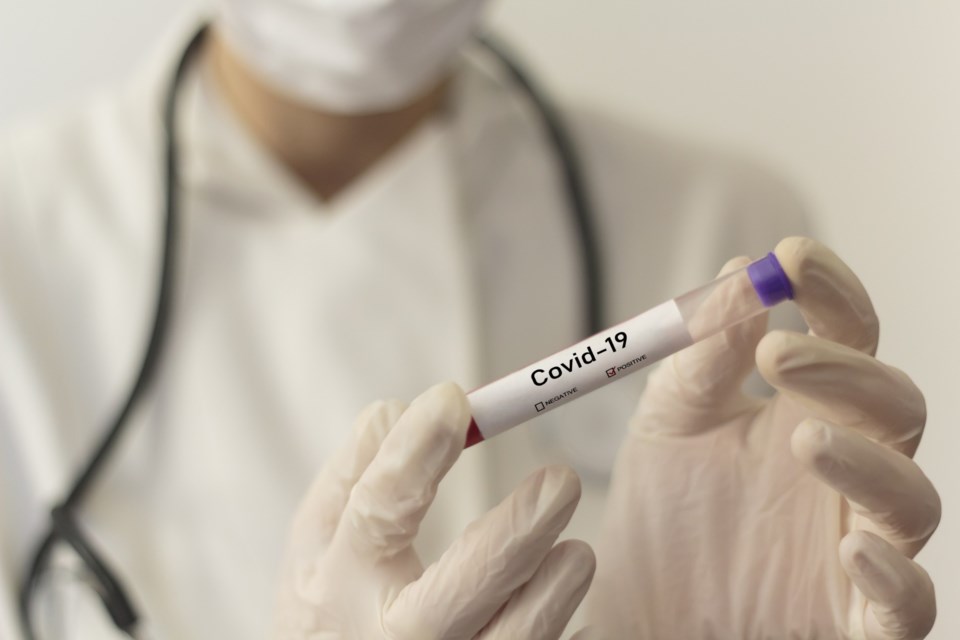The month of March marked the fifth anniversary of the COVID-19 pandemic’s arrival internationally and locally.
It was a strange time.
People remember lining up to enter stores, banks and other places of business.
They remember the masks and the lockdowns that led to working and studying from home and doing business through curbside service.
Worst of all, from the start of the pandemic until March 15 of this year, Algoma Public Health reported 268 institutional COVID outbreaks and 128 Algoma residents died from the virus.
While the worst is over and life is back to normal, the virus is still there, health officials say.
“COVID-19 continues to circulate in Algoma with periodic waves of increased transmission. While case numbers have declined from earlier peaks, COVID-19 remains a concern for older adults, immunocompromised individuals, and those with underlying health conditions,” said Dr. John Tuinema, Algoma Public Health acting medical officer of health in an email to SooToday.
While the masks are gone - for the most part - and most of us are back to shaking hands instead of bumping fists, it's still necessary for some to be careful.
“Individuals at higher risk or in contact with vulnerable populations may still benefit from precautions like mask-wearing in crowded indoor spaces," Tuinema said.
"Algoma Public Health encourages residents to assess their personal and family risk, stay up to date with vaccinations, and follow respiratory etiquette, such as staying home when sick.
"In some cases, based on individual risk factors, masking may be beneficial in public when there are large indoor crowds."
Tuinema offered his insight on the current state of COVID-19, lessons learned during the pandemic and APH priorities moving forward.
“COVID-19 is still present, but we’ve made significant progress in managing the virus. Vaccination, personal risk assessment, and public health preparedness remain key.”
Looking back on the pandemic, Tuinema said everyone played their part.
“Our communities rose to the challenge to stop the spread, which bought us time to develop a vaccine.
"Once we had a vaccine, the overwhelming majority of residents rolled up their sleeves and got immunized to reduce the deadly impact of the virus. We carry the lessons of the pandemic with us and continue to strengthen APH’s ability to respond to future health threats,” Tuinema said.
Responding to COVID-19 placed a significant strain on everyone, including frontline workers.
“Many APH employees worked extensive hours and took on new roles. Ongoing monitoring and response efforts continue, and lessons from the pandemic are being incorporated into long-term planning to enhance resilience for future public health emergencies,” Tuinema said.
With the worst of COVID over, Tuinema said APH staff have been able to step back from extra duties and concentrate on the public health unit’s core programs.
Sault Area Hospital - as the Sault and Algoma District's largest hospital - has played a vital role in caring for individuals who contracted COVID-19 and for those still at risk.
“This disease continues to circulate locally and worldwide. We continue to see COVID-19 infections, admissions, and hospital outbreaks at Sault Area Hospital,” said Rose Calibani, SAH communications and public affairs officer, in an email.
“Not unlike other Ontario hospitals, flu season continues to pose patient flow challenges and creates a stressful environment for SAH workers. We encourage frequent handwashing and the use of masks in patient care areas, especially during respiratory flu season,” Calibani said.
While some resisted the COVID-19 vaccine throughout the pandemic for various reasons, APH said ongoing COVID-19 vaccinations are an important tool in reducing severe illness, particularly for high-risk groups.
